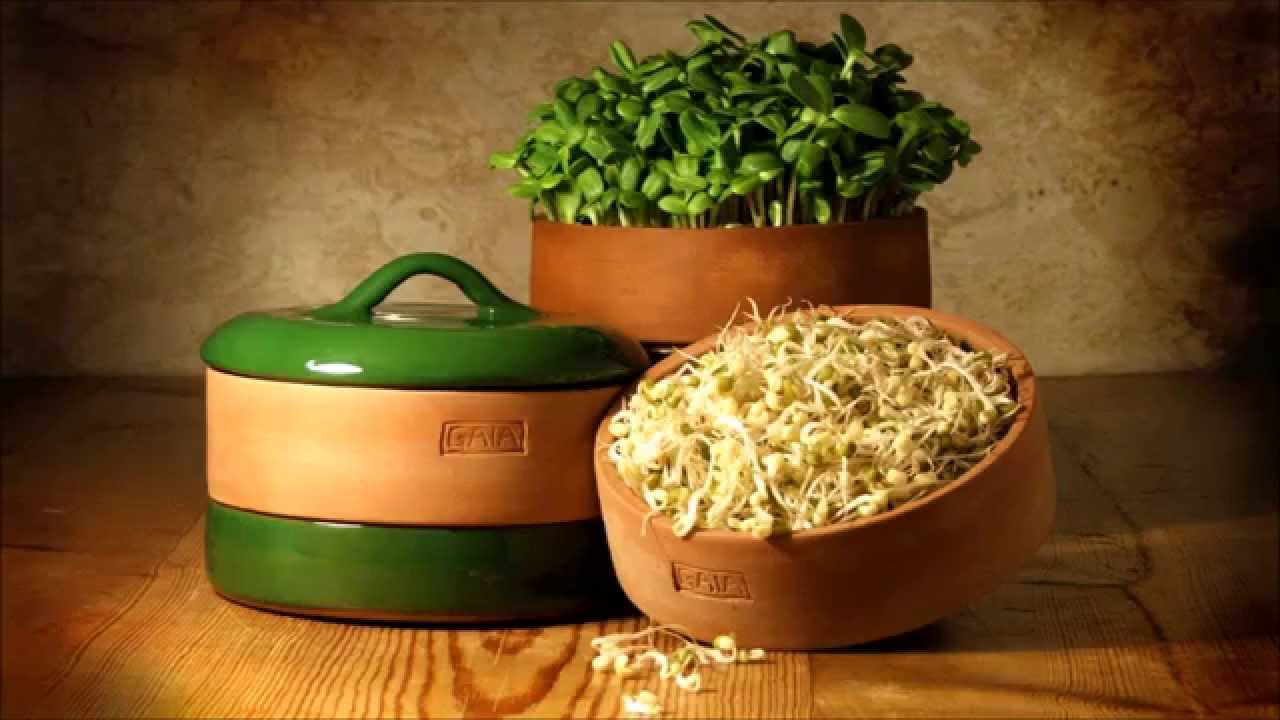
Today I want to introduce you to something that probably only a few of you do – sprouting.
To be honest, a couple of years ago I was like “Sprouting? What?” Then I discovered boxes with fresh sprouts in shops such as Planet Organic, Wholefoods and As Nature Intended and started buying them because I heard they are very good for you. And only a year ago I finally got myself a clay sprouter and started doing it myself.
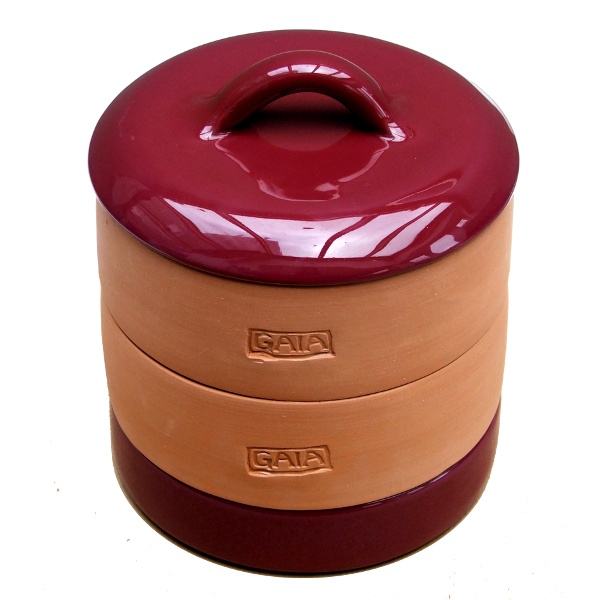
I absolutely love my sprouter, it’s from the company called Gaia and they are British small company. And I always liked to rather support small local business than big corporations, so I didn’t mind splashing out on a good quality sprouter. Having said that, you don’t really need a sprouter if you want to sprout, you can do it in the glass jar very easily. But I fell in love with Gaia sprouter and it’s look very nice on my window seal!
This sprouter has a few levels, so you can sprout a few different beans and seeds at the same time. At the moment I have a bag with alfalfa seeds left ( all beans have gone already) so I am sprouting alfalfa.
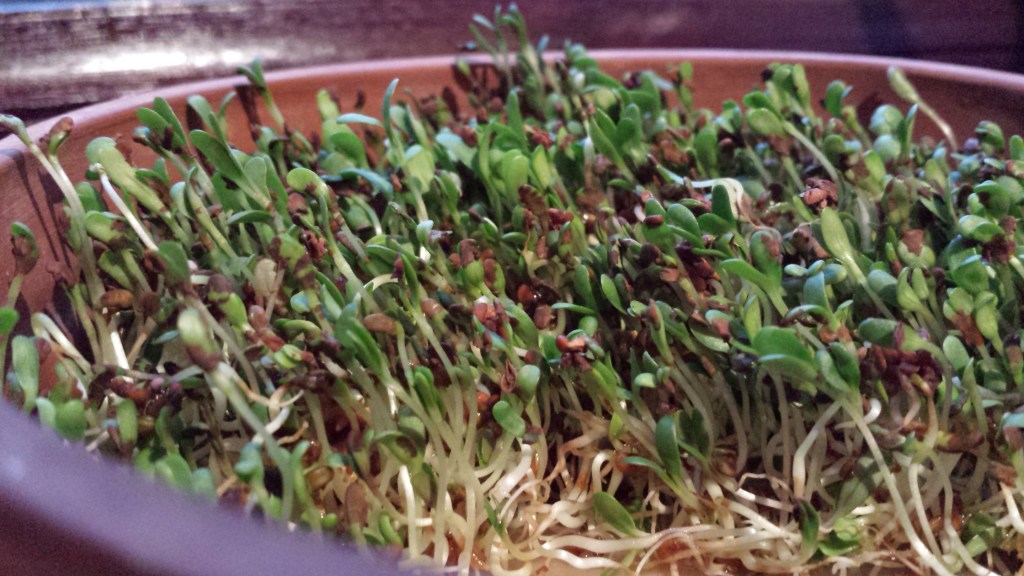
You probably wonder what I do with it… Well, it goes in my salads, smoothies and sometimes I just grab some by hand and eat it as it is, it’s nice and crunchy.
What are alfalfa sprouts exactly?
Alfalfa sprouts come from an alfalfa seed and are a great, nutritious addition to many meals. It’s usually added to soups, on top of sandwiches and with salads.
Sprouts are filled with many of the great benefits found in seeds and are very healthy because the process of sprouting brings out many enzymes. They also carry more protein, vitamins and minerals than unsprouted seeds.
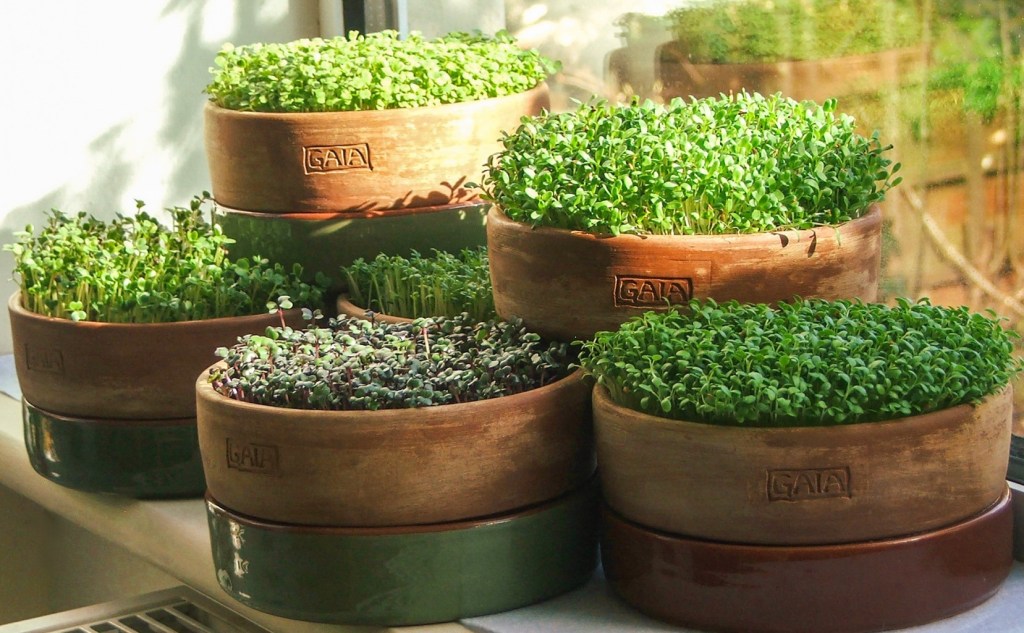
The sprouts of the alfalfa seeds are full of
health benefits
— all while low in calories and high in vitamins and minerals.
1. They are full of Antioxidants and other Anti-Aging nutrients.
Alfalfa sprouts are a proven high-antioxidant food, which helps protect our cells from damage caused by free radicals. Antioxidants promote better health and can prevent a number of diseases and illnesses. Alfalfa sprout’s vitamin K levels help prevent diseases connected to ageing (osteoporosis, artery hardening, etc.).
2. Alfalfa sprouts have high levels of Vitamin C
Alfalfa sprouts on one of the top vitamin C foods and a great way to supplement your vitamin C needs — which is essential to many healthy bodily functions and especially your immune system.
3. They help to prevent Osteoporosis
Vitamin K is essential in preventing and even treating osteoporosis. The body needs vitamin K to adequately utilise the calcium, which builds bones. Alfalfa sprouts also have a notable amount of manganese, which is also an essential nutrient in preventing osteoporosis and inflammation.
4. Decrease PMS and Menopause Symptoms
The combination of vitamin K and phytoestrogens has an effect on regulating estrogen, which could help minimise PMS and symptoms of menopause.
5. Lower Blood Glucose Levels in Diabetics
Alfalfa sprouts are anti-diabetic due to their ability to lower blood glucose levels. Regulating blood sugar levels is important in treating diabetes, and alfalfa sprouts helps decrease the dependency on insulin.
6. Reduce Cholesterol
Alfalfa is one of the better cholesterol-lowering foods because by reducing the levels of lipids in the blood it helps to reduce symptoms of coronary heart disease brought on by high cholesterol levels.
Alfalfa seeds are available in most of the health shops. I buy mine in Holland and Barret, they are in a kit called Organic Sprouting Mix from Basic Organics. They have a number of different beans for sprouting there and also alfalfa seeds.
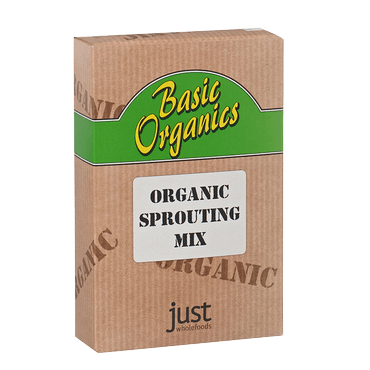
Growing alfalfa sprouts at home is easy and there are multiple ways to do so.
As I mentioned before you can grow them in a jar, a clay tray or other containers.
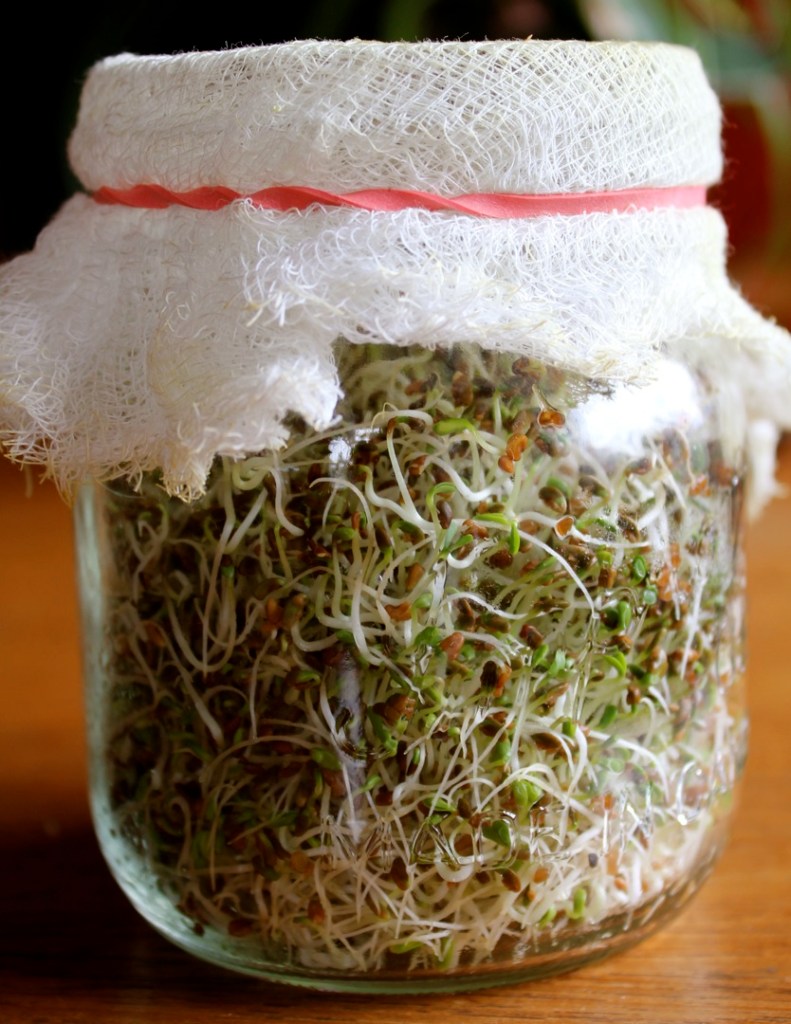
Sprouting in a glass jar
- Soak the seeds in the water overnight at room temperature. Pour water out.
- Next, put the seeds in a jar covered with some cloth .
- Continue to keep the seeds sprayed with water at least 2 to 3 times each day until they’re 5-10 cm long and ready to eat.
- For best results, use only filtered water, because the chlorine water can cause poor sprouting. Sprouting is best done at room temperature. It will take 4 to 7 days to obtain good-sized sprouts.
- Wash the sprouts before eating to remove seed coats and fibrous roots. Sprouts are best when used immediately after washing but can be stored for several days in the fridge in closed containers.
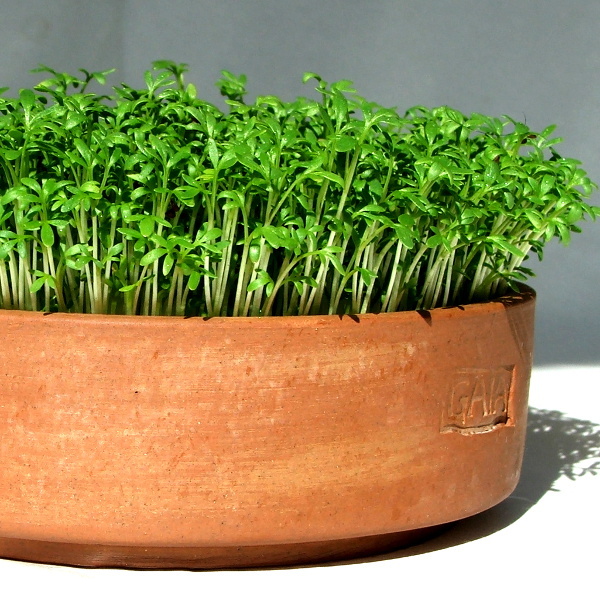
Sprouting in a clay sprouter ( like I do)
- Fill bottom tray with water.
- Put a very wet kitchen towel on the bottom of one tray with holes.
- Put alfalfa seeds on this towel
- Close the lid
- Spray with water 2-3 times daily
- Remove the lid in 2 days and allow them to grow in the open tray
- In 4-6 days they should be ready.
- Wash to separate the sprouts from the seeds before eating
Alfalfa Sprouts Precautions
While alfalfa sprouts are nutritious and provide many health benefits, there are some precautions which you need to keep in mind.- Because of high levels of vitamin K, people taking blood thinners should avoid alfalfa sprouts. This can be an major interaction, so check with your doctor before consuming alfalfa sprouts.
- There are concerns about how the alfalfa sprouts affects the human body, specifically the immune system. WebMD issues this warning about alfalfa sprouts for those with autoimmune diseases: “Alfalfa might cause the immune system to become more active, and this could increase the symptoms of auto-immune diseases. If you have an auto-immune condition, it’s best to avoid using alfalfa until more is known.” But if you don’t have autoimmune disease – alfalfa sprouts is a great way to boost your immune system and get healthy!
